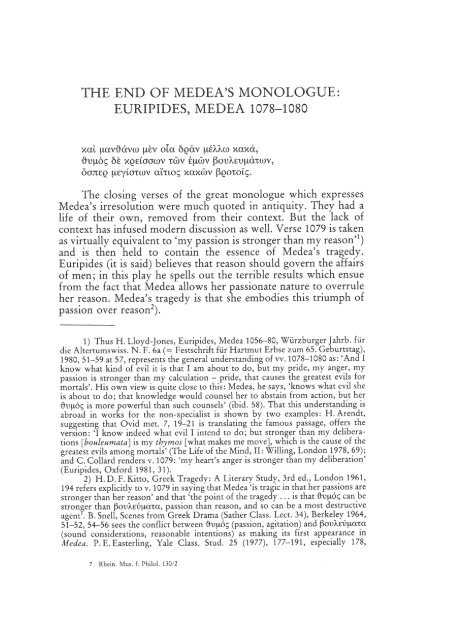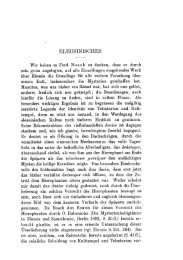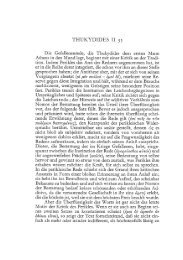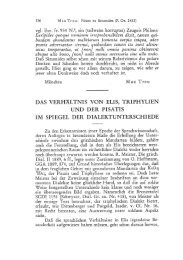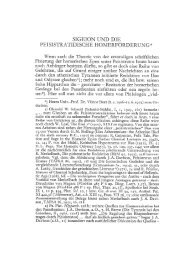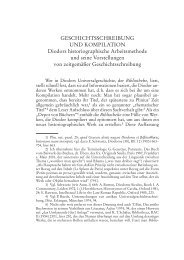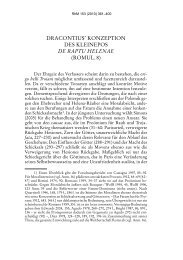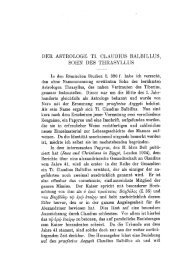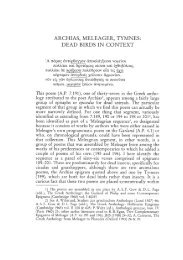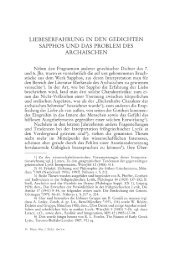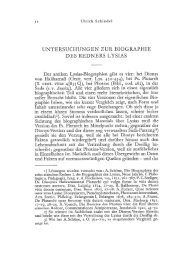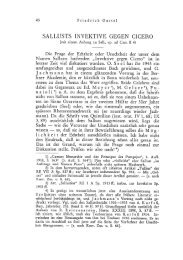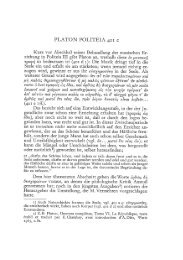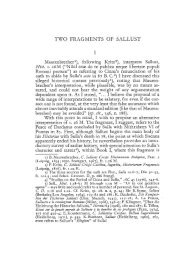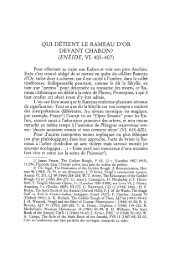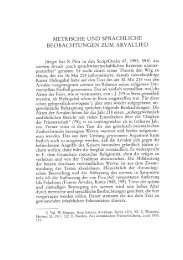THE END OF MEDEA'S MONOLOGUE: EURIPIDES, MEDEA 1078 ...
THE END OF MEDEA'S MONOLOGUE: EURIPIDES, MEDEA 1078 ...
THE END OF MEDEA'S MONOLOGUE: EURIPIDES, MEDEA 1078 ...
Create successful ePaper yourself
Turn your PDF publications into a flip-book with our unique Google optimized e-Paper software.
98 G. R. Stanton<br />
What, then, is the context which, when too much ignored,<br />
has allowed this interpretation? After the foreboding and utter<br />
despair of the chorus for Medea's children, Jason's bride, Jason<br />
and Medea in turn in the ode at vv. 976-1001, the paidagogos<br />
returns with the news that Medea's children have been released<br />
from exile and may now stay in Korinth; hence (he thinks) Medea<br />
might be brought back when they are older. He is soon disabused<br />
of the thought that his news of the delighted reception by Jason's<br />
new bride of Medea's gifts is welcome to Medea. For her the most<br />
awful part of her plan is near. She pretends to accept his counselling<br />
on her separation from her children and sends hirn inside to<br />
prepare for them things which - on her plan - they will never need<br />
(1002-1020).<br />
There follows the great monologue in which Medea twice<br />
loses her determination but twice steels herself to kill her children<br />
by Jason. Brief pity for her children, deprived of their mother in<br />
that other form of life, is overtaken by grief at her own future<br />
without their loving looks, their care for her in old age, their<br />
attention to her burial. In vain the cruel pain of childbirth, her<br />
nurture of them, her toil and weariness. Her relentlessness (u-u<br />
{}uöiu) has destroyed her high aspirations in them (1021-1039).<br />
The first thing which makes Medea's resolve fail is the radiant<br />
smile of her children, their last. She bids farewell to her former<br />
plans (1044-5 XaLQEtW ßOVAE"I-lUtU I ta nQ6o{}Ev, 1048 XaLQEtW ßou-<br />
186--189, in arguing that Euripides in this play represents the observed patterns of<br />
human behaviour closely, suggests that the audience will only accept the abhorrent<br />
deed Medea contemplates if it has evidence (in the great monologue) of a profound<br />
struggle between injured pride and love for her children. E. Schlesinger, while<br />
denying that 'the tragic conflict of the whoie drama lies essentially in the assault of<br />
passion on her maternal feelings, which here in the monologue finally impels her to<br />
decide to kill her children', nevertheless finds in the climax of the monologue a<br />
strong opposition between reason and passion (Zu Euripides' Medea, Hermes 94<br />
[1966], 26--53, especially 29-30 = On Euripides' Medea, in E. Segal [ed.],<br />
Euripides: A Collection of Critical Essays [Englewood Cliffs, N.}. 1968],70-89,<br />
especially 71-72). W. Schadewaldt, Monolog und Selbstgespräch: Untersuchungen<br />
zur Formgeschichte der griechischen Tragödie (Neue Philol. Unters. 2), Berlin<br />
1926, especially 193-198,251-252, seems to have been influential. The approach of<br />
M. T. Cassanello, Alastor, thym6s, boUleuma nella Medea di Euripide: Analisi<br />
semiologica, in Mythos: Scripta in honorem Marii Untersteiner (Pubbl. Ist. di<br />
Filol. Class. 30), Genova 1970, 107-120, especially 110, 115-119, seems to me<br />
mistaken: she sees a bipolarity between {h,!-t6


